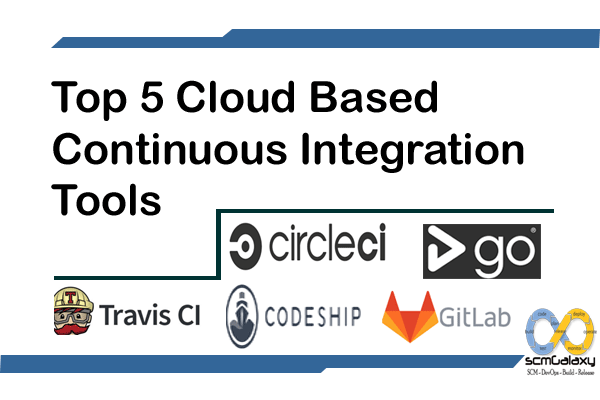
Today we are going to discuss about Cloud based continuous integration tools. As we already discussed about Continuous integration, it’s benefits and top continuous integration tools in our previous article which was published few weeks ago, you can click here go there. In this article, we tried to make your selection process easy if you are looking for cloud based continuous integration tools.
These days organisations are increasingly turning to cloud based options for continuous integration and this is obvious because cloud based options allows you hassle free process. You don’t need to build new server, downloading or installing or configuring the softwares in local platform. You don’t need to spend your time to manage or upgrade them frequently. Alongwith that when you need more resources during business hours, you also get the leverage for infrastructure resources on-demand and greatly reduce the time to run large builds or regression test suites. Therefore cloud hosted CI tools are on demand, just configure and go.
So, without any further ado, let’s check out the Top 5 Cloud based Continuous Integration tools.
1. Travis CI
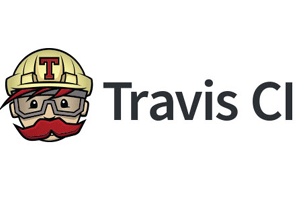
Travis CI is a cloud based continuous integration tool which is developed by Travis CI community. This is written in Ruby and it is an open source tool. You can easily synchronise GitHub projects with this tool. It’s supports platforms like Linux, Mac or iOS and also supports many languages in which Node js, php, Xcode, python, java, are few of them.
Key Features
- Supports pull request and branch build flow
- Run tests in parallel
- Great API and command line tool
- Open Source tool
- Multi-language support
- Easy to sync GitHub projects
- Pull request build flow
- Branch build flow
- Notifications by Slack, HipChat, Emails and more
- Deploy to S3 and Heroku
2. Go CD
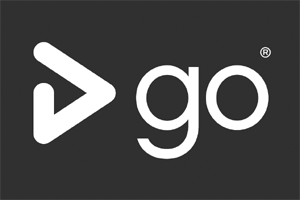
Go CD is also amongst the top tools which is used for cloud based continuous integration. However, Go CD is continuous delivery tool. This tool is written in Java and Ruby and available under Apache license. It was Developed by ThoughtWorks in the year 2007 and renamed GoCD later in the year 2010.
Key Features
- Open source tool
- Supports Cross platform
- Manual triggers to customise and save good versions of Apps
- Value Stream Map allows you to track a change from commit to deploy at a glance.
- Test reporting
- compare builds feature for both files and commit messages – across any two arbitrary builds
- Allow to set multiple servers to keep your data available in the case of an emergency
- GitHub Integration
3. CircleCI
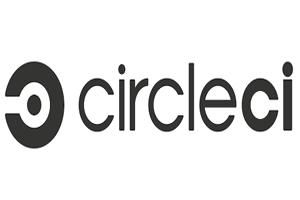
CircleCI is a cloud based continuous integration software which is belongs to Circle CI and was founded in the year 2011. It is available as free and paid with trail option. It is integrated with popular code management services such as GitHub & Bitbucket. It supports languages like Python, Node.js, Ruby, Java, Go, etc.
Key Features
- Free plan even for a business account
- Rest API — you have an access to projects, build and artifacts
- You can trigger SSH mode to access container
- Integrated with Github & Bitbucket
- It’s easy, lightweight and fast to start
- Compatible with Ubuntu and Mac OS X
- Compatible with AWS, Azure, Heroku, Docker, dedicated server
4. GitLab CI
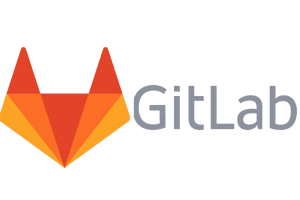
GitLab CI is also amongst the best Hosted continuous integration tool which belongs to GitLab Inc and available under open source and commercial license. This is written in Ruby and Go. Gitlab build scripts are command line driven and work with Java, PHP, Ruby, C, and any other language.
Key Features
- Fully integrated with GitLab
- Supports platforms like Unix, Windows, OSX, and any other platform that supports Go
- Tests run distributed on separate machines of which you can add as many as you want
- GitLab CI offers the same great experience as GitLab. Familiar, easy to use, and beautiful.
- Easy to use
- Each build can be split in multiple jobs that run in parallel on multiple machines
- There are multiple executors and you can reproduce tests locally
5. Codeship
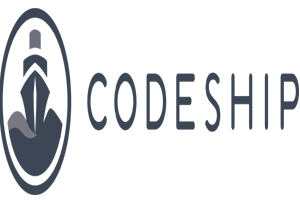
Codeship is one of the most powerful cloud based CI tool which available in open source but for support you need to choose paid option. It’s easy to start using Codeship, the size of team and needs does not affect the performance. This tool works on GitHub and Bitbucket, but you can use it with docker platform too by opting packages. This tool support languages such as Java, PHP, Ruby (Rails), Node.js, Python, and Go.
Key Features
- Easy to start and Use
- Fully customizable hosted CI platform
- You can sign up with GitHub, GitLab & Bitbucket
- Flexible Pricing
- ParallelCI feature
- Open source tool but for support you need to pay
- Docker Supported (by upgrading)
Do you agree with this list? If not than feel free to respond in the comment box with your own take on the top cloud based or hosted continuous integration tools. One more thing, I would like to add here, if you need help to learn all these build tools or DevOps courses than scmGalaxy can help you in this. scmGalaxy is a community of DevOps professionals who are well experienced in this domain. So, feel free to contact us.